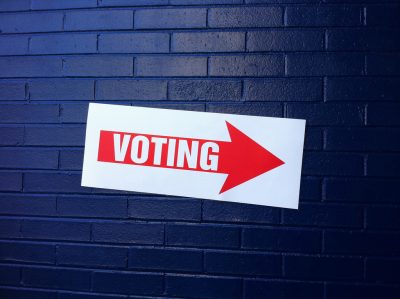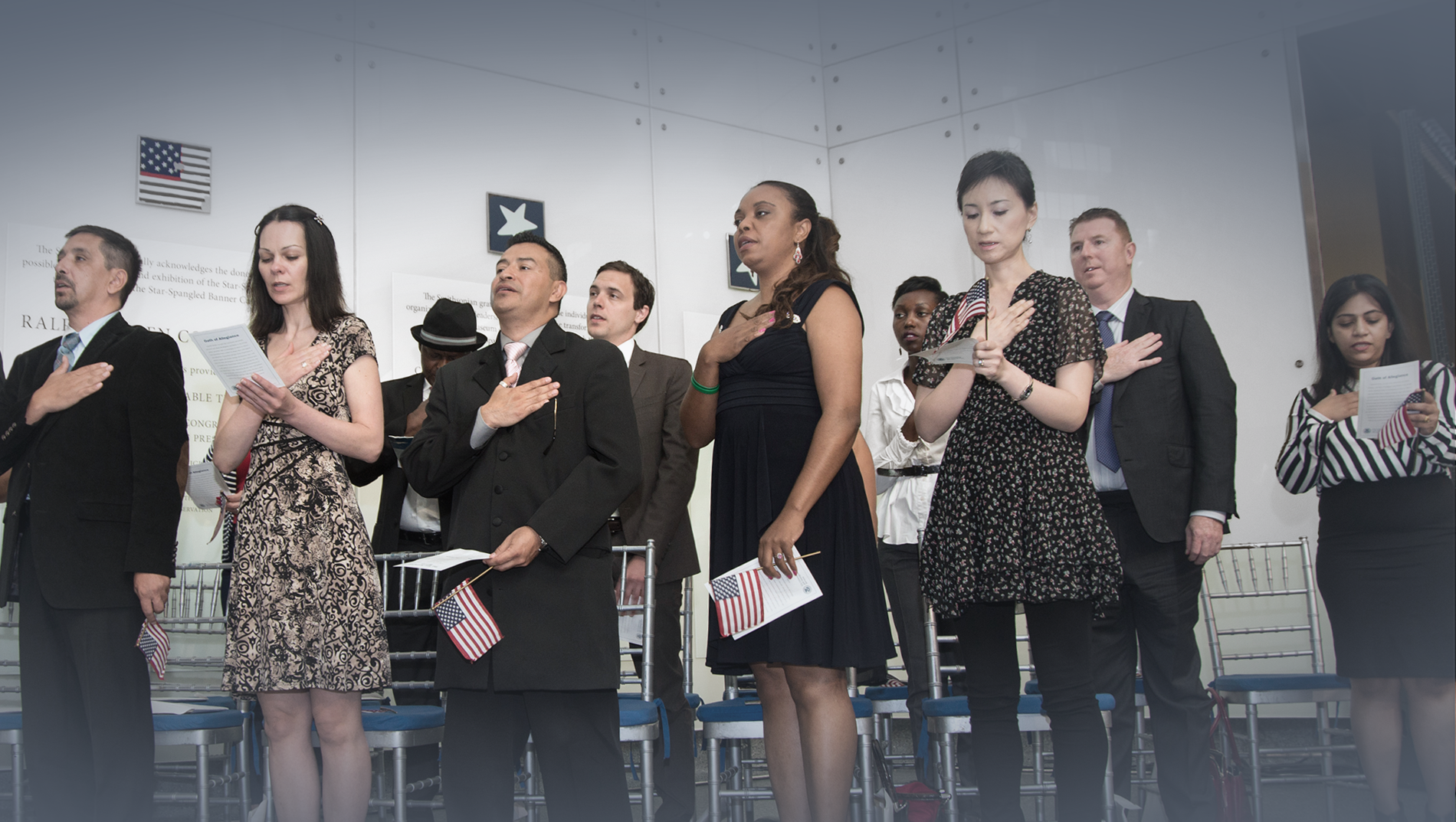Immigration 101
The U.S. immigration system is complex and can be difficult to understand. These resources provide key data points, historical information, and background on hot topics in immigration. Learn the basics about immigration. Immigration in the United States is complex and ever-evolving. Start here to understand the fundamental aspects of immigration policy, its history, and its impact on both individuals and the country at large. Learn commonly used terms about immigration law and how the U.S. immigration system is designed. Explore layered topics like how and whether immigrants can become citizens, as well as what individual protections look like under the law.
How the United States Immigration System Works
- How the Immigration System Works
- June 24, 2024
U.S. immigration law is very complex, and there is much confusion as to how it works. This fact sheet provides basic information…
Read More
Birthright Citizenship in the United States
- Birthright Citizenship
- October 16, 2024
This fact sheet explains birthright citizenship, the Fourteenth Amendment, and its interpretations. Who is…
Read More
Asylum in the United States
- Asylum
- August 27, 2014
Asylum seekers must navigate a difficult and complex process that can involve multiple government…
Read More
Faith Leaders Crusade for Immigration Reform
It’s no secret that faith and religious leaders have not always seen eye-to-eye with Washington on politically controversial issues—right to life, gay rights, capital punishment, etc. Immigration, however, is not one of those issues. In fact, many interfaith groups have been the most vocal in calling on the new Administration and 111th Congress to “enact humane and equitable immigration reform in 2009.” Last week, the U.S. Conference of Catholic Bishops issued a statement urging President Obama to keep his promise to fix our broken and outdated immigration system. Cardinal Francis George of Chicago, president of the bishops' conference, said: Only through comprehensive reform can we restore the rule of law to our nation’s immigration system. Now is the time to address this pressing humanitarian issue which affects so many lives and undermines basic human dignity. Read More

Anti-immigrant Bills Fail at the State and Local Level
One result of Congress’s failure to pass comprehensive immigration reform is an increased focus on immigration by state legislatures. The federal government has been unable to legalize the undocumented population, enact smart enforcement, and deal with the future immigration of workers and family members. States and localities, then, are left in the position of trying to deal with their new immigrant communities. While some states and localities have pushed measures to integrate newcomers into their communities, others have tried to enact harsh immigration-control measures such as deputizing police to enforce immigration laws, requiring employers to verify employment authorization through the flawed E-Verify program, and denying public benefits to immigrants. Read More

FAIR Takes Aim at Virginia’s Immigrants and Children
In a new report, the Federation for American Immigration Reform (FAIR)—an anti-immigrant hate group headquartered in Washington, DC—claims that “Virginia’s illegal immigrant population costs the state’s taxpayers nearly $1.7 billion per year for education, medical care and incarceration.” However, the statistical gymnastics in which FAIR engages to produce this number render it virtually meaningless. FAIR dramatically exaggerates the fiscal “costs” imposed by undocumented immigrants by including the schooling of their native-born, U.S.-citizen children in its estimate and completely discounts the economic role that undocumented workers play as consumers who help support Virginia businesses. Read More

Department of Homeland Security Suspends “Widow Penalty”
Photo by Kratka Photography. This week, the Obama administration took another step toward restoring fairness and humaneness to the immigration system. On Tuesday, Department of Homeland Security (DHS) Secretary Janet Napolitano announced that she would grant a two-year reprieve to immigrants who were married to U.S. citizens but did not complete the permanent residency process because their American spouses died during the application process. Under U.S. law, a foreign-born spouse of a U.S. citizen is eligible for permanent residency, but must complete a two-year conditional residency period first. In cases where the U.S. citizen spouse died during the conditional residency status, the application for permanent residency was effectively revoked leaving the foreign spouses without legal immigration status and vulnerable to deportation. DHS’s decision also protects children of widowed immigrants from deportation for a two-year period. Read More

Arizona Sheriff Joe Arpaio Adds More Flash to His Pan
Anti-immigrant media glutton, Arizona Sheriff Joe Arpaio, doesn’t stay out of the headlines for very long. In March, the menacing Sheriff Arpaio, known for transforming Arizona’s Maricopa County Police Department into an immigration-enforcement agency, made headlines when he became the focus of a Department of Justice (DOJ) investigation for “allegations of discriminatory practices based on a person’s national origin and unconstitutional searches and seizures.” The federal investigation, a result of racial profiling allegations, only makes this latest headline all the more ironic—Sheriff Arpaio now says the Department of Justice is not playing fair in its investigation. Read More

Pollsters Believe a Majority of Voters Support an Immigration Overhaul
Despite anti-immigrant groups repeated attempts to sway public opinion by scapegoating immigrants for the recession, new polling data suggests that the majority of likely voters actually support an overhaul of our broken immigration system—an overhaul that includes a path to citizenship for the roughly 12 million undocumented immigrants living in America. A recent survey by Benson Strategy Group—a group who conducts polling for President Obama and Fortune 100 Companies—found that 71% of likely voters think undocumented immigrants should take steps to become legal taxpayers. Similarly, Celinda Lake of Lake Research Partners said recent polling data suggests that voters want undocumented immigrants out of the shadows and on the books: If anything, the economic climate has actually improved the environment for immigration reform, at least as far as the public is concerned. A salient issue is that reform would make immigrants all taxpayers. [Voters] want a level playing field and they don't have one today. There's a huge pool of workers that are playing by a different set of rules than they are. Read More

The Anti-Immigrant Arithmetic of NumbersUSA Doesn’t Add Up
The anti-immigration group NumbersUSA blames immigrants for just about every environmental and economic ill to befall the United States, from air pollution and urban sprawl to unemployment and high taxes. But, as the Immigration Policy Center (IPC) explains in a new fact sheet entitled Fuzzy Math, NumbersUSA bases its immigrant-bashing on an overly simplistic and fundamentally flawed arithmetic of “over-population” in which “more people” is automatically (and incorrectly) equated with more pollution, more competition for scarce jobs, and higher taxes. In reality, “over-population” is not the main cause of the environmental or economic problems confronting the United States, so trying to impose arbitrary limits on immigration that are divorced from reality will not create a better environment or a stronger economy. Read More

Fuzzy Math: The Anti-Immigration Arguments of NumbersUSA Don’t Add Up
According to the anti-immigration group NumbersUSA, immigration to the United States is all about arithmetic: immigration increases the U.S. population, and more people presumably means more pollution, more urban sprawl, more competition for jobs, and higher taxes for Americans who must shoulder the costs of “over-population.” At first glance, this argument is attractive in its simplicity: less immigration, fewer people, a better environment, more jobs, lower taxes. However, as with so many simple arguments about complex topics, it is fundamentally flawed and misses the point. “Over-population” is not the primary cause of the environmental or economic woes facing the United States, so arbitrary restrictions on immigration will not create a cleaner environment or a healthier economy. Read More

African American Jobs and Immigration Myth Unplugged
A long-standing and contentious issue which anti-immigrant groups are currently trying to exploit is whether or not the presence of immigrants in the U.S. labor force—especially undocumented immigrants—has a major adverse impact on the employment prospects of African Americans. The anti groups argue that undocumented immigrants, who tend to have low levels of formal education and work in less skilled occupations, are “taking” large numbers of jobs that might otherwise be filled by African American workers. However the evidence just isn’t there. It is important to acknowledge that African Americans do face daunting economic and employment problems, and that the legacy of discrimination continues to be felt in communities large and small across the country. Anti-immigrant organizations have coldly seized on these troubles, however, to leverage a particularly nasty kind of argument against immigration. Some of these self-professed advocates for African-Americans have long-standing ties to “nativists” and “hate groups.” Read More

A New Study Reinforces Growing Influence of Second Generation Latinos
A new study by the Pew Hispanic Center estimates that only 7% of all Latino children are undocumented immigrants. Pew also found that a growing share of the children with unauthorized immigrant parents—4 million or 73%—were born in this country and are U.S. Read More
Make a contribution
Make a direct impact on the lives of immigrants.

